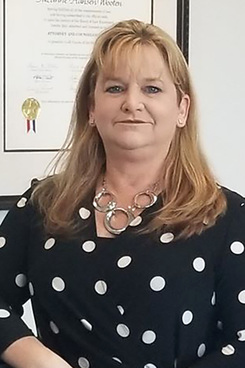Lawyers Weigh In After Judge Fights the Law--and Loses
A Texas judge was wrongfully convicted, and a court has ruled she can only sue one of the four prosecutors who she named in a lawsuit. Former prosecutors across Texas say changes are needed to absolute prosecutorial immunity.
July 08, 2020 at 05:56 PM
6 minute read
The original version of this story was published on Texas Lawyer
 Photo: rudall30/Shutterstock.com
Photo: rudall30/Shutterstock.com
As a Texas prosecutor for 10 years, Dallas attorney Philip Ray said he sometimes saw his colleagues making ethically questionable decisions on cases.
"People get so warped up in believing their own understanding of the facts that they justified behavior, and prosecutions, that shouldn't be brought," said Ray. "They get so fanatic about thinking they are on the right team that they lose sight of fairness. They lose sight of right and wrong."
He thinks victims should be able to make prosecutors answer for misdeeds.
"Frankly, I think people should be able to sue when things are way out of line," he said.
But most of the time, absolute prosecutorial immunity stops that from happening.
"When the immunity is absolute immunity, you insulate those who would not do the right thing. It is infuriating to the people who want to do the right thing," said Ray, who is now a criminal defense solo practitioner.
The issue of prosecutorial immunity came up this week in a high-profile case of an ex-judge who is suing prosecutors over her wrongful conviction. She claimed a rare victory that allowed her to move forward against one prosecutor.
Read more: This Ex-Judge Was Wrongfully Convicted, but She Can't Touch 3 of 4 Texas Prosecutors Behind Her Indictment
 Suzanne Wooten, solo practitioner in McKinney, Texas
Suzanne Wooten, solo practitioner in McKinney, TexasFormer Judge Suzanne Wooten was wrongfully convicted in 2011 in a case that alleged she took bribes in the form of campaign contributions during her 2008 campaign for the bench. She was acquitted in 2017 in a ruling that said even if true, the allegations against her were not a crime under Texas law. Next, she sued the prosecutors and their supervisors, as well as Collin County, alleging malicious prosecution and other claims. On Monday, the U.S. Court of Appeals for the Fifth Circuit tossed three defendants from the case after determining that prosecutorial immunity protected them from the lawsuit.
The Fifth Circuit allowed Wooten's lawsuit to proceed against one prosecutor, Christopher Milner, because Wooten's allegations, if they were true, showed that the prosecutor was acting more like a law enforcement investigator than a government lawyer.
"I think this case just demonstrates how difficult it is to bring a civil case against the authorities and how powerful they are. It underscores the fact that you need to have prosecutors who have a solid moral compass, and that understand their role as a prosecutor is to ensure justice, and the fair administration of the rule of law," said Philip Hilder, a principal in Hilder & Associates in Houston.
 Philip Hilder
Philip HilderProsecutorial immunity applies to prosecutors who are launching a prosecution or preparing a case for a trial. It does not apply to a prosecutor's administrative or investigative duties.
There are good reasons why prosecutors need absolute immunity, said Hilder. It protects them from second-guessing their decisions about filing charges against someone.
"They can do the right thing, and they don't have to worry about being sued," he explained.
If anyone could sue a prosecutor, the government would have to defend a great number of lawsuits, which would be extremely costly, he added.
Hilder, who worked as a federal prosecutor for almost seven years, said that if prosecutors are involved in egregious wrongdoing, he thinks they should have to face lawsuits. There is already a mechanism that allows people who were wrongly prosecuted to hold prosecutors accountable, he said.
"Those are few and far between," said Hilder. "If they violate certain ethical responsibilities, then they can be held accountable as well, by losing their license or in some cases actually being sued as well. Those are high bars. But they are there nonetheless to reign in prosecutors that are overstepping their authority."
Although current law does provide methods for victims to file lawsuits, it's not sufficient to address prosecutorial misconduct, said Houston lawyer Michael Wynne, who worked as a federal prosecutor for 12 years.
It can take years for someone who was wrongly prosecuted or investigated to hold a prosecutor accountable for wrongdoing, explained Wynne, a partner in Gregor | Wynne | Arney.
"By that time, the person affected—his or her life—and the businesses affected may be damaged beyond repair. I think we need to have interim vehicles. So, for instance, in this case, how many years of a wrongly prosecuted person's life has been completely taken away from them? The problem with the mechanisms we have in place is it takes too freaking long," Wynne said.
Although Wooten made it past the prosecutorial immunity bar in this round of the litigation for one defendant, Milner, he will still be able to claim other forms of immunity.
The type of immunity that applies to law enforcement investigators is called qualified immunity, and it is not as strong as prosecutorial immunity, explained Michelle Bradford, partner in Barnes & Thornburg in Washington, D.C.
Bradford, who was a federal prosecutor and also a civil assistant U.S. attorney who defended law enforcement in civil rights lawsuits, explained that a plaintiff can overcome qualified immunity if he or she shows that the defendant violated a clearly established legal or constitutional right. The issue of qualified immunity typically comes up in police excessive-use-of-force lawsuits, Bradford noted.
Without digging into Wooten's lawsuit, Bradford said she couldn't tell specifically if Milner has a good argument for qualified immunity. But generally speaking, she thinks he does not.
"Overall, if a prosecutor without any basis is conducting investigations against an individual and has no basis to believe a crime has been committed, then I think qualified immunity should not protect that individual's actions," she said.
This content has been archived. It is available through our partners, LexisNexis® and Bloomberg Law.
To view this content, please continue to their sites.
Not a Lexis Subscriber?
Subscribe Now
Not a Bloomberg Law Subscriber?
Subscribe Now
NOT FOR REPRINT
© 2025 ALM Global, LLC, All Rights Reserved. Request academic re-use from www.copyright.com. All other uses, submit a request to [email protected]. For more information visit Asset & Logo Licensing.
You Might Like
View All
Fired by Trump, EEOC's First Blind GC Lands at Nonprofit Targeting Abuses of Power
3 minute read
'Erroneous Rulings'?: Wilmer Asks 4th Circuit to Overturn Mosby's Criminal Convictions
3 minute read
LSU General Counsel Quits Amid Fracas Over First Amendment Rights of Law Professor
7 minute read
Zoom Faces Intellectual Property Suit Over AI-Based Augmented Video Conferencing
3 minute readLaw Firms Mentioned
Trending Stories
- 1Public Notices/Calendars
- 2Wednesday Newspaper
- 3Decision of the Day: Qui Tam Relators Do Not Plausibly Claim Firm Avoided Tax Obligations Through Visa Applications, Circuit Finds
- 4Judicial Ethics Opinion 24-116
- 5Big Law Firms Sheppard Mullin, Morgan Lewis and Baker Botts Add Partners in Houston
Who Got The Work
J. Brugh Lower of Gibbons has entered an appearance for industrial equipment supplier Devco Corporation in a pending trademark infringement lawsuit. The suit, accusing the defendant of selling knock-off Graco products, was filed Dec. 18 in New Jersey District Court by Rivkin Radler on behalf of Graco Inc. and Graco Minnesota. The case, assigned to U.S. District Judge Zahid N. Quraishi, is 3:24-cv-11294, Graco Inc. et al v. Devco Corporation.
Who Got The Work
Rebecca Maller-Stein and Kent A. Yalowitz of Arnold & Porter Kaye Scholer have entered their appearances for Hanaco Venture Capital and its executives, Lior Prosor and David Frankel, in a pending securities lawsuit. The action, filed on Dec. 24 in New York Southern District Court by Zell, Aron & Co. on behalf of Goldeneye Advisors, accuses the defendants of negligently and fraudulently managing the plaintiff's $1 million investment. The case, assigned to U.S. District Judge Vernon S. Broderick, is 1:24-cv-09918, Goldeneye Advisors, LLC v. Hanaco Venture Capital, Ltd. et al.
Who Got The Work
Attorneys from A&O Shearman has stepped in as defense counsel for Toronto-Dominion Bank and other defendants in a pending securities class action. The suit, filed Dec. 11 in New York Southern District Court by Bleichmar Fonti & Auld, accuses the defendants of concealing the bank's 'pervasive' deficiencies in regards to its compliance with the Bank Secrecy Act and the quality of its anti-money laundering controls. The case, assigned to U.S. District Judge Arun Subramanian, is 1:24-cv-09445, Gonzalez v. The Toronto-Dominion Bank et al.
Who Got The Work
Crown Castle International, a Pennsylvania company providing shared communications infrastructure, has turned to Luke D. Wolf of Gordon Rees Scully Mansukhani to fend off a pending breach-of-contract lawsuit. The court action, filed Nov. 25 in Michigan Eastern District Court by Hooper Hathaway PC on behalf of The Town Residences LLC, accuses Crown Castle of failing to transfer approximately $30,000 in utility payments from T-Mobile in breach of a roof-top lease and assignment agreement. The case, assigned to U.S. District Judge Susan K. Declercq, is 2:24-cv-13131, The Town Residences LLC v. T-Mobile US, Inc. et al.
Who Got The Work
Wilfred P. Coronato and Daniel M. Schwartz of McCarter & English have stepped in as defense counsel to Electrolux Home Products Inc. in a pending product liability lawsuit. The court action, filed Nov. 26 in New York Eastern District Court by Poulos Lopiccolo PC and Nagel Rice LLP on behalf of David Stern, alleges that the defendant's refrigerators’ drawers and shelving repeatedly break and fall apart within months after purchase. The case, assigned to U.S. District Judge Joan M. Azrack, is 2:24-cv-08204, Stern v. Electrolux Home Products, Inc.
Featured Firms
Law Offices of Gary Martin Hays & Associates, P.C.
(470) 294-1674
Law Offices of Mark E. Salomone
(857) 444-6468
Smith & Hassler
(713) 739-1250








